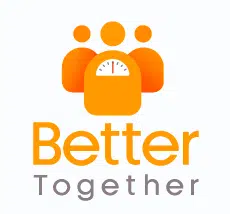Introduction
Embarking on a weight loss journey is a deeply personal endeavor, yet it does not have to be undertaken alone. Whether you’re tracking calories, logging workouts, or monitoring your water intake, using a weight loss tracker can significantly enhance your journey. These tools offer insight into your progress and provide motivation, accountability, and a sense of community when shared with friends or family. In this comprehensive guide, we’ll explore how to maximize the benefits of weight loss trackers to achieve and sustain your fitness goals.
Understanding Weight Loss Trackers
At its core, a weight loss tracker is a tool designed to monitor various aspects of your health and fitness journey. From the food you consume to the calories you burn; these trackers provide a holistic view of your lifestyle choices and their impact on your weight loss goals. Available in various forms — digital apps, wearable devices, and even paper journals — each type of tracker offers unique features to suit different preferences. Digital apps, for example, can log meals and workouts, wearable devices monitor physical activity and sleep, and journals offer a tangible record of your journey. Choosing the right tracker is about finding the balance between convenience, functionality, and personal preference. Learn more about choosing the right tracker.
The Benefits of a Weight Loss Tracker
Utilizing a weight loss tracker comes with a multitude of benefits. Accountability is perhaps the most significant, as logging your daily activities encourages consistency and responsibility toward your goals. These trackers also provide data-driven insights, allowing you to understand patterns, identify what works, and adjust your strategy accordingly. Furthermore, trackers can be a source of motivation. Watching your progress over time can be incredibly rewarding and spur you on to maintain or even increase your efforts. Lastly, when used in a communal setting, trackers foster a sense of support and competition. Sharing your journey with friends or family introduces a social aspect, making the process more enjoyable and sustainable. Discover how to stay motivated with your fitness goals.
Choosing the Right Weight Loss Tracker
Selecting the appropriate weight loss tracker is crucial for your journey. The ideal tracker should not only fit your lifestyle but also inspire you to reach your fitness goals. Consider features like nutritional tracking, activity logging, and whether the tool offers community or social networking features that allow for sharing progress with others. For those who thrive on support and competition, a tracker that integrates social connectivity can be particularly motivating. More detailed considerations can be found in our guide on selecting the best fitness tools.

Setting Achievable Goals
Setting goals is the foundation of any successful weight loss journey. However, goals need to be SMART: Specific, Measurable, Achievable, Relevant, and Time-bound. This methodology ensures that your objectives are clear and attainable within a specified time frame. Setting goals with friends or family can add an extra layer of commitment and fun. Check out our tips for setting achievable fitness goals and how to share these goals with your support network to enhance accountability.
Tracking Your Nutrition
One of the most effective ways to lose weight and maintain a healthy lifestyle is through careful monitoring of your diet. Accurate logging of your food intake, understanding the caloric and nutritional content of foods, and planning meals can significantly impact your weight loss efforts. Incorporating apps or trackers that offer a comprehensive database of foods, along with the ability to scan barcodes for easy logging, can simplify this process. For more on nutrition tracking and meal planning, see our resource on effective diet monitoring.
Monitoring Your Physical Activity
Physical activity is another pillar of weight loss and overall health. Whether it’s daily steps, specific exercises, or planned workouts, tracking your activity helps ensure you’re meeting your fitness goals. Different trackers offer various features for logging workouts, tracking progress over time, and even providing workout suggestions. For individuals who enjoy exercising with friends or family, look for features that track group activities or challenges. Learn more about how to track and optimize your workouts in our guide to monitoring physical activity.
Analyzing Your Progress
Understanding and interpreting the data your tracker provides is key to adapting your strategy for better results. Weight trends, calorie intake, workout effectiveness, and sleep patterns are just a few of the metrics that can offer insights into your overall health and progress. Reviewing these metrics regularly can help you identify what’s working and what needs adjustment. For a deeper dive into analyzing health data, explore our guide on making sense of your fitness tracker data.
Staying Motivated Together
The journey to weight loss and improved fitness is more enjoyable and often more successful when shared. Engaging in challenges with friends or family, celebrating each other’s victories, and providing support during setbacks can keep motivation high. Many weight loss trackers offer features that facilitate this kind of group interaction, turning individual efforts into a collective journey. For strategies on maintaining high motivation and fostering group support, refer to our article on keeping motivation high in group fitness challenges.
Avoiding Common Tracking Mistakes
While weight loss trackers are powerful tools, their effectiveness largely depends on how they are used. Common mistakes include overestimating the intensity or duration of workouts, underreporting food intake, and getting too fixated on numbers. Remember, the goal of using a tracker is to support a balanced, healthy lifestyle—not to serve as a source of stress. For guidance on common pitfalls and how to avoid them, our section on common tracking mistakes and how to avoid them provides essential tips.
Inspirational Stories of Success
Nothing inspires action like hearing about the success of others. Whether it’s a friend who met their marathon goal, a family member who’s achieved a significant weight loss milestone, or a group that collectively improved their health metrics, success stories can be incredibly motivating. While individual experiences vary, the lessons learned from these journeys can provide valuable insights and encouragement. Find inspiration in our collection of success stories at weight loss success stories.
Beyond Weight Loss: Tracking for Overall Health
A holistic approach to using weight loss trackers encompasses more than just shedding pounds; it includes monitoring sleep, hydration, stress levels, and more. These metrics provide a fuller picture of your health and can significantly impact your weight loss efforts and overall well-being. To understand the importance of a holistic health perspective and how to track it, visit our detailed guide on the holistic approach to health tracking.
Conclusion
Embracing a weight loss tracker as part of your fitness journey offers a structured path to achieving your goals, especially when coupled with the support and motivation of friends or family. By selecting the right tracker, setting achievable goals, accurately tracking your diet and exercise, analyzing your progress, and avoiding common mistakes, you’re setting yourself up for success. Remember, the journey is as rewarding as the destination, especially when shared.
Frequently Asked Questions (FAQs)
What is the most accurate way to track weight loss?
The most accurate way to track weight loss is by using a combination of tools and methods. This includes regular weigh-ins with a reliable scale, measuring body fat percentage, and tracking changes in body measurements such as waist circumference. Additionally, monitoring your diet and physical activity through a weight loss tracker app can provide insights into your overall progress. Consistency in your tracking method is key to getting accurate results over time.
What is the best free weight loss tracker app?
There are several excellent free weight loss tracker apps available that offer a range of functionalities, from food logging to activity tracking. The best app for you depends on your specific needs and goals. Popular options include Fitbit, Apple Health, and Google Fit. These apps are user-friendly, provide extensive food and exercise databases, and include social features for added motivation.
How do I track my weight loss progress?
Tracking your weight loss progress can be done in several ways:
- Digital Tracker Apps: Use an app to log your daily food intake, exercise, and weigh-ins.
- Wearable Devices: Wearable fitness trackers can monitor your steps, heart rate, and even sleep, offering a comprehensive view of your health.
- Physical Journals: For those who prefer a hands-on approach, keeping a physical journal of your diet, exercise, and weekly weigh-ins is effective.
- Photographs: Taking regular progress photos can visually document your journey and highlight changes that aren’t always reflected on the scale.
How can I check my weight loss?
To check your weight loss, use a consistent method for measuring your weight and body composition changes over time. This includes:
- Weighing yourself at the same time of day, preferably in the morning, on a reliable scale.
- Measuring body fat percentage periodically using body fat scales or other body composition tools.
- Take body measurements with a tape measure to track changes in the waist, hips, and other areas.
- Observing how your clothes fit, as this can be a practical indicator of weight loss.








